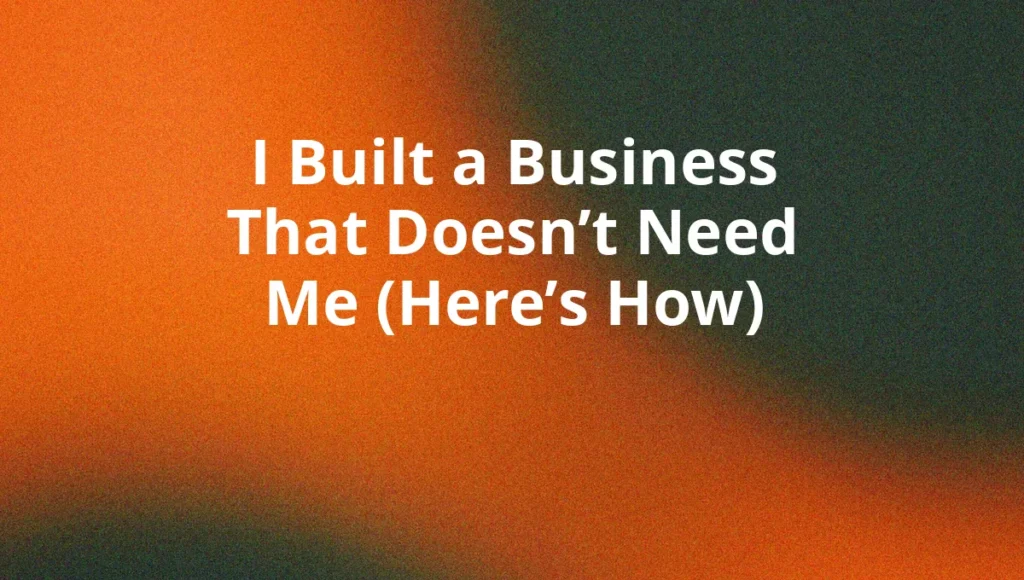There’s a phrase that gets thrown around like confetti at a graduation ceremony: “Follow your passion.” It sounds so simple, so right. It evokes images of people chasing sunsets while sipping on artisanal coffee, living life on their own terms. But here’s teh real talk: it’s a pretty misleading slogan when you peel back the layers.
I remember when I was in the thick of it, running my hustle. The mantra was everywhere.”do what you love, and the money will follow,” they said. Sounds delightful, right? The truth, though, is a bit uglier. My passion was for building businesses, but what I really loved was seeing my bank account grow. The kicker? Passion doesn’t automatically translate too profit-at least not without some serious hard work and strategy. I learned that the hard way.
When I first started, I had this notion that passion was an infallible compass. I was utterly bankrolled by the excitement of launching my first project. I imagined building this wildly successful thing that would change the world-or maybe just my corner of it.But what I didn’t realize then was that passion alone can be a trap. You can be wildly passionate about something, pouring countless hours into it, only to find out the market doesn’t give a damn. That’s where disillusionment sets in.
There’s a dark side to this narrative that we frequently enough overlook. It can lead to people sticking with their “passion projects” long after the signs are flashing that it’s time to pivot. I’ve seen friends cling to their artisanal candle businesses because they love crafting. They refuse to acknowledge that the market is saturated and that handmade candles are, well, a tougher sell than they anticipated. Their passion is admirable, but sometimes, being stubbornly passionate can blind you to the reality of your situation.
Mindset plays a massive role, and this is where the entrepreneurial journey can get messy. Passion can morph into obsession, and before you know it, you’re pouring all your energy into something that’s going nowhere. I’ve burned myself out chasing what I thoght was my passion, only to realize I wasn’t being strategic. Passion doesn’t compensate for poor decisions or lack of market fit. Data? Buisness insight? Yeah, those help, but they fell by the wayside while I was trying to be the ’hero’ of my own story.
So, here’s a shocking truth: your passion shouldn’t be the only thing guiding your decisions.What’s way more important is identifying what you’re good at and how you can serve others in that space. People often romanticize passion,but let me tell you,serving the needs of your audience and solving their problems is where the real magic happens. My best business decisions have come from listening closely to what people wanted-not from what I was excited about that day.
Don’t get me wrong; you can absolutely find convergence between what you love, what you’re good at, and what people need. It’s not an either-or scenario. But the emphasis should be placed on building something valuable rather than just pursuing what makes your heart race. That’s a powerful mindset shift that will save you from a lot of wasted time and emotional turmoil.
And hey, it’s not just about ticking boxes like passion and skill. It’s also about resilience. When passion fuels your decisions, setbacks can feel monumental.The failure rate in entrepreneurship is staggering, and when you take it personally-when you’ve tied your identity to your passion-you can spiral. But when you view your work thru the lens of value, failures become data points. They’re not reflections of your worth; they’re opportunities to learn and pivot. After countless failures, I came to see them as stepping stones-scuff marks on the path to success.
here’s another nugget that might ruffle some feathers: find a way to monetize your passion without being sentimental about it. Regarding money, many of us conflate the feeling of being aligned with something wholesome with the actual dollar signs. That’s not what sustains a business. It’s a harsh truth, but revenue needs to be the heartbeat of your operation, not just an afterthought attached to your passion.
So the next time you hear someone preach about the virtues of following your passion, remember to filter their advice through the lens of practicality.Your passion can be the spark, but don’t let it blind you from the necessary grit and business acumen needed to build something that lasts. Tune into what works, what feels aligned, but always leave room for adaptiveness.
Life as an entrepreneur is messy, chaotic, and utterly rewarding. It’s okay to love what you do, but, more importantly, let your love adapt and evolve with the market. Keep your eyes open, listen, and don’t let passion blind you from what really matters: serving others, solving problems, and creating something that lasts.




